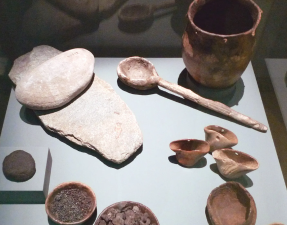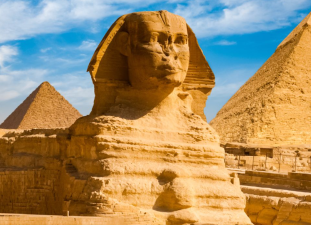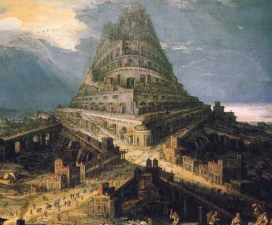Humanity has always pursued civilization. Through thousands of years of effort, we have achieved many remarkable achievements and created a glorious history.
Mastering Tools
The First Milestone of Human Civilization
Humans emerged from the ranks of animals. This occurred between 5 and 3 million years ago.
The use of tools enabled humans to hunt, gather food, protect themselves, and interact with nature more efficiently. From then on, humanity embarked on a path of prosperity and progress, ultimately becoming the dominant force on Earth.
Using Fire
The Second Milestone of Human Civilization
Humanity mastered a powerful weapon. This occurred approximately 1.5 million years ago.
The use of fire not only brought warmth and light to humans but also greatly expanded our food sources, making previously indigestible foods palatable. Fire also became a crucial tool for defending against wild animals and warding off the cold. The mastery of fire symbolized humanity's mastery of the forces of nature and marked another leap forward in human civilization.
The Origins of the Four Great Civilizations of the World
- Ancient Egyptian Civilization
Ancient Egyptian civilization is renowned for its mysterious culture and magnificent architectural achievements. It not only led to prosperity in the Nile River region but also contributed a valuable legacy to the development of world civilization.
▲ Origin of Civilization
Ancient Egyptian civilization originated in the middle and lower reaches of the Nile River.
▲ Starting Date
Around 4000 BC, ancient Egyptian civilization began to emerge.
▲ Major Achievements
Ancient Egypt achieved remarkable achievements in many fields, including architecture, art, literature, and science. Its major achievements are reflected in the following areas:
The Miracle of the Pyramids: Over 80 pyramids remain in the Nile River basin, the most majestic of which is the Pyramid of Khufu. With its massive scale and exquisite craftsmanship, it has become a symbol of ancient Egyptian civilization.
- The Mysterious Sphinx: In front of the Pyramid of Khafre stands a sphinx, known as the "Sphinx." This statue not only symbolizes the wisdom and artistry of the ancient Egyptians, but also carries the enigmatic mystery of the Sphinx, leaving endless fascination for future generations.
- The Birth of the Solar Calendar: Throughout their long history, the ancient Egyptians created the earliest solar calendar in human history. This calendar, with its unique wisdom and accuracy, provided a crucial time reference for agricultural production and daily life in the Nile River Basin.
- The Great Unification of Menes: 5,100 years ago, Menes, with his remarkable wisdom and military prowess, successfully unified Upper and Lower Egypt and established the First Dynasty of Egypt. This historical event marked the birth of the earliest unified dynasty/empire in human history.
- Ancient Egyptian Mathematics and Geometry: 5,200 years ago, the ancient Egyptians created the earliest mathematical system in human history. This achievement not only demonstrated their mathematical talent and wisdom but also laid a solid foundation for the development of mathematics in later generations.
- The Innovation of Writing Instruments and Paper: 5,000 years ago, the ancient Egyptians invented the world's first specialized writing instruments—the reed pen and papyrus. This significant invention not only changed the way people wrote but also promoted the spread and exchange of culture.
- Pioneers of Glassmaking: The ancient Egyptians were also the world's first glassmakers. With their ingenious spirit and exquisite craftsmanship, they created crystal-clear glass products, laying a solid foundation for the subsequent development of the glass industry.
- Ancient Babylonian Civilization
Ancient Babylonian civilization achieved remarkable achievements in mathematics, astronomy, architecture, and other fields, contributing significantly to the prosperity and development of human civilization.
▲ Origin of Civilization
The Sumerians settled in Mesopotamia, now located in Iraq, known as the birthplace of Ancient Babylonian civilization.
▲ Historical Origins
Around 5000 to 4000 BC, the Sumerians migrated to this land and established their presence, marking the beginning of Ancient Babylonian civilization.
▲ Brilliant Achievements
In this ancient land, the people of Ancient Babylon left an enduring legacy in mathematics, astronomy, architecture, and other fields, adding a significant dimension to the evolution of human civilization. Its remarkable achievements include:
- The Code of Hammurabi: This is the earliest known and relatively complete written code of law in the world, providing a valuable reference for the legal system of ancient society.
- The Invention of Cuneiform Script: Cuneiform script was a great invention of the Sumerians, and this writing system made a significant contribution to communication and record-keeping within ancient civilizations.
- Sexagemic System: The ancient Babylonians adopted a sexagemic system of counting, which still influences our time and measurement systems today.
- Ancient Indian Civilization
Ancient Indian civilization achieved significant spiritual and cultural achievements, which had a profound impact on the development of religion and philosophy worldwide.
▲ Origin of Civilization
The Indus and Ganges rivers together formed the birthplace of ancient Indian civilization.
▲ Origin of Civilization
Its history can be traced back to approximately 2500 BC. ▲ Brilliant Achievements
Ancient Indian civilization achieved remarkable success in many areas:
- Caste System: In ancient Indian civilization, the caste system was a system of social stratification centered on the ruling class, profoundly influencing the structure of ancient Indian society and people's lifestyles.
- The Evolution of Numbers: Around the 3rd century BC, people began using numerical symbols to record numbers. By the early 5th century AD, the concept and symbol of zero were created, further refining the numerical system.
- The Origin and Spread of Buddhism: Buddhism originated between the 6th and 5th centuries BC. Its founder was Sakyamuni, and the religion has a wide range of followers worldwide.
- Ancient Heliocentric Theory: The Arya-Vitha-sastra, produced in 499 AD, expounded the world's earliest heliocentric theory.
- Chinese Civilization
Chinese civilization achieved remarkable achievements in science, technology, and culture, providing rich experience and achievements for the evolution of world civilization.
▲ The Beginning of Civilization
The origins of Chinese civilization are closely related to the development of tribes in the Yellow River Basin. ▲ Historical Moments
This civilization's historical milestone can be roughly traced back to 5,000 to 6,000 BC.
▲ Glorious Chapters
Over the long ages, Chinese civilization, with its unique charm, has written page after page of glorious chapters. Its major achievements include:
The Four Great Inventions:
- The compass shone brightly in navigation.
- Papermaking, innovated by Cai Lun during the Eastern Han Dynasty, promoted the spread of culture.
- Printing technology, which developed through multiple stages, made large-scale printing possible.
- The widespread use of gunpowder in military affairs promoted the advancement of weapons technology.










